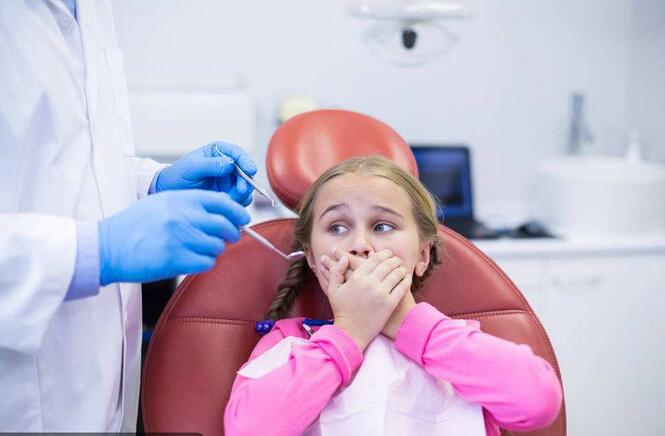Apparently, when fathers display fear and anxiety, kids are most likely to pick up those cues and see dental visits as something to fear.
很顯然,當父親表現出恐懼和焦慮時,孩子很可能接收這些心理暗示,認為看牙醫(yī)是一件令人恐懼的事情。
Why fathers carry so much weight in influencing how their kids think about the dentist is not clear.
父親的反應為何很大程度傷影響子女對牙醫(yī)的看法,原因尚不明確。
At least the study doesn't really offer an explanation.
至少這項研究沒有給出合理解釋。

But it does suggest that fathers can play an important role in what psychologists called positive emotional contagion.
不過研究表明,父親在心理學家所說的“積極情緒傳染”中扮演著重要的角色。
If fathers' fear of the dentist can contaminate their kids, the opposite might also be true.
如果父親對牙醫(yī)的恐懼情緒會傳染給孩子,那么反之亦然。
In other words, dads behaving positively and not displaying fear could orient their kids towards not fearing the dentist.
也就是說,父親積極的、不帶恐懼的言行能夠引導孩子不再恐懼牙醫(yī)。
So the researchers call for parents, and fathers in particular, to be involved in dentist fear prevention campaigns.
因此,研究人員呼吁父母,尤其是父親行動起來,幫助孩子預防牙醫(yī)恐懼癥。












